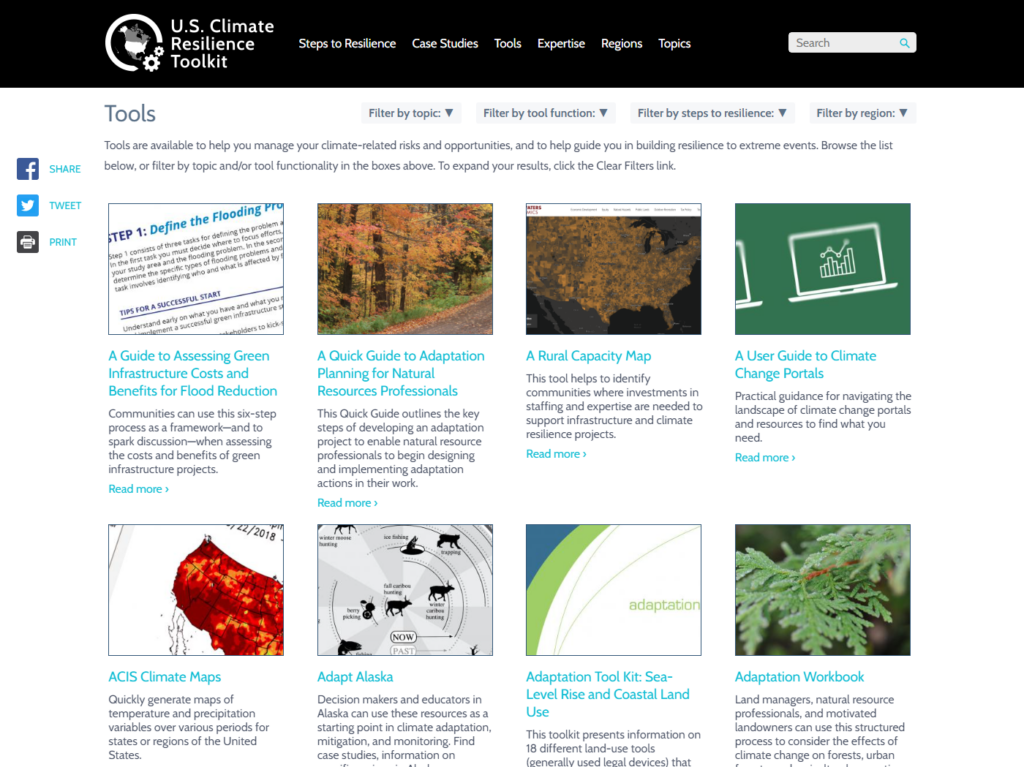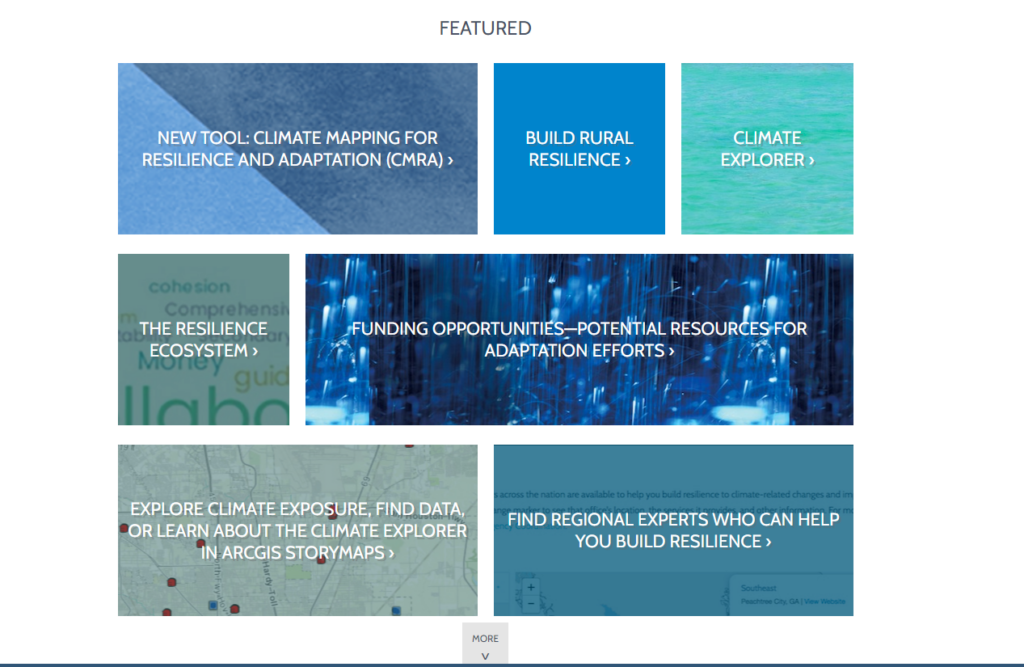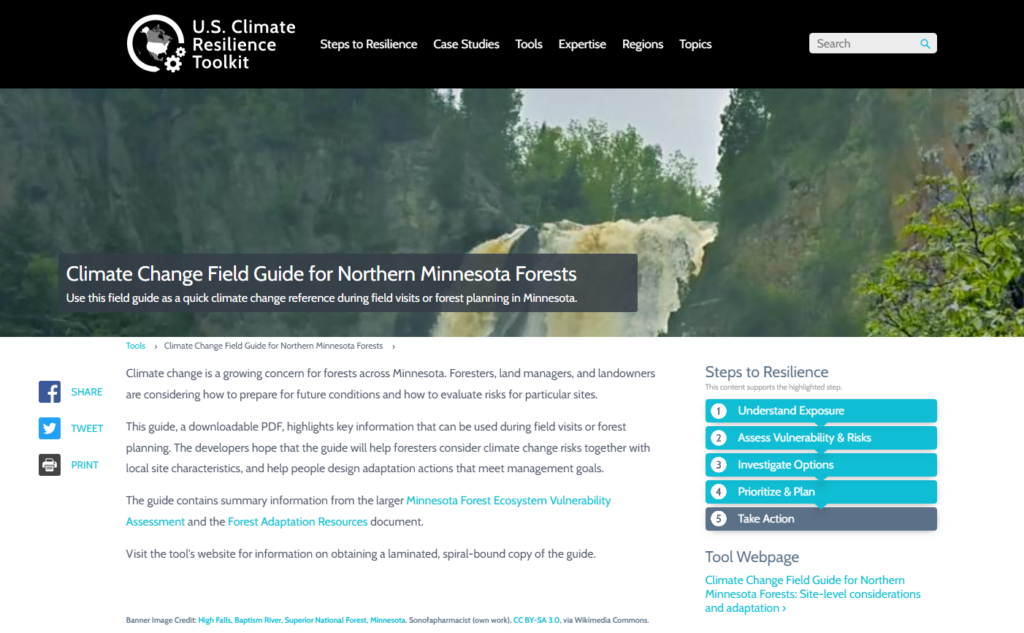Geography
National
Level of Effort
Low
Overview
The U.S. Climate Resilience Toolkit is a website designed to help people find and use tools, information, and subject matter expertise to build climate resilience. The Toolkit offers information from all across the U.S. federal government in one easy-to-use location.



Features
- Find tools related to ecosystems, the built environment, marine life, and other focus areas
- Filter tools by topic, function, steps to resilience, and geographic region
- Find resources relevant to communities, agriculture, forests, and coastal resilience in the Great Lakes region
Great Lakes Regional Resources
The Toolkit features a Great Lakes Region page that provides an overview of the region and the challenges posed by climate change. The Toolkit also provides resources relevant to four topics areas within the Great Lakes region
- People and communities: public health, vulnerability and adaptation, and tribal adaptation
- Infrastructure and the built environment: energy, extreme rainfall and flooding, and transportation
- Agriculture, forests, and ecosystems: impacts of a changing climate on agriculture, forests, and ecosystem composition
- Building resilience: tribal adaptation and collaboratively building adaptive capacity
Great Lakes Coastal Resilience Tools
The Toolkit features over 100 tools that are classified as relevant for use in the Great Lakes region. These tools cover a range of topics and functions. A few of the tools that focus on climate resilience in the Great Lakes are highlighted below:
Portal Custodian & Partners
Related Data & Tools
- United States Global Change Research Program
- NOAA Climate Program Office
Tags
decision tool, portal, tool portal, resource hub, Great Lakes, Lake Michigan, Lake Superior, Wisconsin, NOAA
